A Science|Business closed-door hybrid roundtable, organised in partnership with Elsevier and TU Eindhoven (14:00 to 16:45 CET) – followed by networking drinks
The role of universities is changing rapidly as the world struggles to cope with a long list of complex, interconnected megatrends and challenges. Both in Europe and beyond, policy makers must find ways to create more sustainable economies and societies, and frequently look to the worlds of research and innovation (R&I) for the human creativity, disruptive ideas and novel technologies to deliver solutions.
Nonetheless, global issues translate into local contexts – which in turn implies a more tailored, focused approach to deal with their impacts. In recent years, the concept of regional innovation ecosystems (RIE) has come to the fore as a means to achieve this. Driven by policy initiatives like the EU’s smart specialisation strategy, and supported by various funding instruments, RIEs bring together diverse public and private sector actors – including all types of research institutions – around a common agenda and objectives, seeking to translate research knowledge into innovation that improves citizens’ lives, boosts territorial competitiveness and inspires growth.
Historically, universities have made valuable contributions to these ecosystems through knowledge creation and skills development across different scientific and technological domains – the core attributes of the so-called “3rd generation university”. Yet as the scale of challenge for policy makers shifts from problem resolution to systems-level transformation, there is pressure on universities to evolve in parallel, moving towards what some are already calling the “4th generation university”.
In this context, it is an ideal time to rethink RIE models and the roles of different actors within them. Given the breadth and scope of their activities, universities are uniquely equipped to be in the vanguard – not only as knowledge partners for governments, industry and other stakeholders, but also as diffusers of innovation and talent into global research systems and value chains. This raises a number of strategic questions that merit deeper consideration:
- What more can universities do to enhance their contribution to their ecosystem, while optimising the role of the ecosystem itself?
- How can leaders guide their universities into and through this change process, and how will that influence their institutional set-up moving forward?
- Is it time to rethink the indicators and metrics used as proxies to assess the way universities and their regional partners interact, and how that translates into wider societal impact?
- Does it imply a new framework for partnering with industry, from multinational companies down to SMEs and start-ups, and with regional governments & agencies?
- How can data and insights from ‘living lab’ RIE case studies inform the design of future policies, instruments and programmes, both at European and regional levels?
- And ultimately, as the world continues to change in unpredictable ways, what will define the mission, purpose and governance of a “4th generation university”?
Clearly, the answers to the above will have major implications for decision makers at European, national and regional level. In the bigger picture, the EU will soon begin deliberations for its next multi-year budget and strategy (2028-2035). Against this backdrop, could the “4th generation” university concept inspire new approaches within the successors to Horizon Europe, Erasmus+ and Regional Development Fund, among others? And at the macro level, what role for RIEs and universities in boosting Europe’s longer-term interests around industrial competitiveness, the green and digital transitions, quality of life and jobs, and regional sustainability?
On June 5, Science|Business will convene a select group of senior figures and experts from across the R&I spectrum and university community to address these topics. Above all, the high-level roundtable will develop recommendations to support policy makers in accelerating the transformative impact of universities within local ecosystems and at global levels.
14:00 Welcome and introductory remarks
- Simon Pickard, Moderator & Network Director, Science|Business
14:05 Catalysts of change: can 4th generation universities transform regional innovation ecosystems?
In recent years, the concept of “4th generation universities” has gained traction within research and (higher) education policy circles, thanks in part to landmark work from the Commission’s Joint Research Centre and the European University Association. Lately, however, closer attention is being paid to its implications for regional innovation policy, given the unique and multi-faceted roles that universities play within their local ecosystems, at the interface between industry, governments and society at large.
The opening session of the roundtable will focus on the “state of the art” in these strategic discussions, not just in terms of latest policy considerations, but also practical insights from universities that have already embarked on the transition process.
Among the topics for consideration:
- Which trends and characteristics distinguish a “4th generation university” from others, and how do these address/reflect the changing expectations for universities within regional innovation ecosystems?
- Are universities themselves ready to embrace this future leadership role, and what new capabilities and mindsets do they require to successfully make the step up?
- Does the transition towards “4th generation” status imply a fundamental redesign of existing partnerships that universities have with other key actors in the ecosystem?
14:40 Ripple effects: How to define and measure impact across boundaries?
A key litmus test for any new approach to innovation management is whether it ultimately delivers tangible benefits for society and advances socio-economic development. In the case of 4th generation universities, the scope of analysis is potentially huge – encompassing education, research, valorisation and governance dimensions. This also implies building consensus within the university – and with external partners – on which strategic goals and milestones to set for the transition, and how to assess progress towards them.
In this context, the second part of the roundtable will address the challenge of measuring value creation in RIEs – both in terms of the impact of local investments in industry-science partnerships and knowledge valorisation, as well as the innovation performance of a given regional community. It will also explore the links to key policy agendas, such as competitiveness and skills, and the challenge of identifying common success factors that allow universities, companies and public agencies to learn from and benchmark against each other.
Among the topics for consideration:
- In which ways can innovation ecosystems contribute more to boosting regional competitiveness and growth, and what role for universities in achieving that?
- Are there other methodologies for tracking and measuring the effectiveness of RIE partnerships and investments from which Europe could usefully learn?
- What are the key goals and milestones for a university choosing to make the transition “4th generation” status, and how to learn from the pioneers in the field?
- How can universities on this journey strike an effective balance between their local sphere of influence and contributions to the global science community?
15:25 Coffee Break
15:40 Grand designs: What are the implications for current and future policy makers?
Given geopolitical and economic realities, the EU is in a race against time – as well as other regional blocks – to boost its industrial competitiveness and technology sovereignty, and to accelerate the green and digital transitions in a fair, inclusive way. Regardless of who is in charge, increasing Europe’s innovation performance will be critical to the next 5-year legislative period, as well as the EU’s strategic agenda for its 2028-2035 budget cycle.
In the final session of the roundtable, discussions will focus on the options available for policy makers – EU, national and regional – to harness the full potential and partnerships of 4th generation universities, and to foster a new role for them within regional ecosystems as true co-creators of societal and economic advancement.
Among the topics for consideration:
- How can Europe better align resources and programmes to support universities and their partners through this transition, whether in the second phase of Horizon Europe, Erasmus+, the European Universities initiative, or similar?
- What role for regions themselves to improve knowledge sharing and innovation flows between RIEs in line with strategic EU objectives? Would new sets of benchmarks and data sharing help to inform future policies and decisions?
- How can the 4th generation university agenda strengthen Europe’s promotion of open science and collaborative approach to tackling global challenges?
- What are the potential implications for the EU’s approach to FP10, including its future strategy for promoting international cooperation while protecting European interests?
- Looking ahead to 2028, how to establish greater synergies with regional development, structural and cohesion funds to boost the overall performance of innovation ecosystems?
16:40 Concluding remarks
16:45 End of roundtable - Followed by a networking reception for participants in Brussels


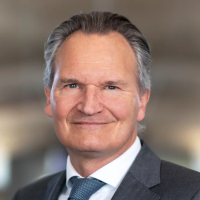
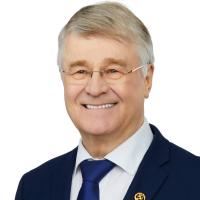
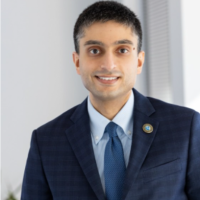
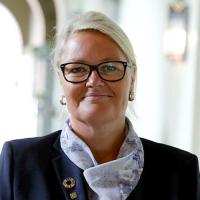





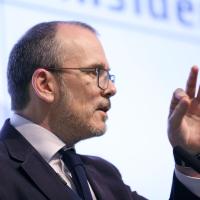










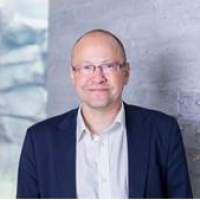
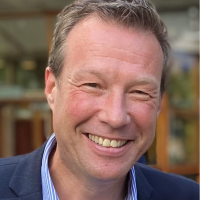
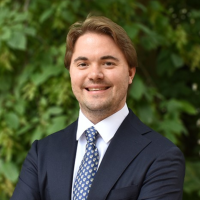








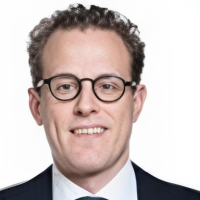
For more information, please contact [email protected]
Partners



 A unique international forum for public research organisations and companies to connect their external engagement with strategic interests around their R&D system.
A unique international forum for public research organisations and companies to connect their external engagement with strategic interests around their R&D system.